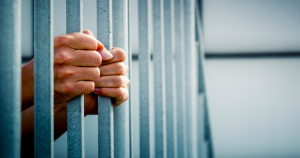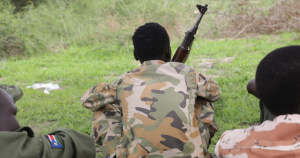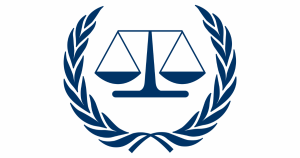The issuing of the Charles Taylor judgment and sentence brings the mandate of the Special Court for Sierra Leone (SCSL), as the principal accountability mechanism to try those who bear the greatest responsibility for the crimes committed during the conflict in Sierra Leone since November 1996, near to completion. As the Court winds down its activities, the question of the SCSL’s impact and legacy in Sierra Leone and Liberia is of utmost significance.
To this end, after the Taylor sentence was issued at the end of May, the Special Court commissioned a nationwide survey on the SCSL’s impact and legacy in Sierra Leone and Liberia, which was conducted by No Peace Without Justice (NPWJ) and its partners the Sierra Leone Institute for International Law, Manifesto 99, the Coalition for Justice and Accountability and the Liberia NGOs Network. The purpose of the survey was to capture people’s understanding about the mandate and operations of the SCSL and establish its impact through its judicial proceedings, its legacy work and its outreach program.
In a statement to the United Nations Security Council on the Special Court for Sierra Leone on 9 October 2012, Justice Shireen Avis Fisher, President of the Special Court for Sierra Leone, and SCSL Prosecutor Brenda J Hollis highlighted the achievements of the Special Court and those of the Office of the Prosecutor. They also discussed some of the challenges faced, the responses to those challenges and certain challenges the Residual Special Court for Sierra Leone may face. In describing the Court’s successes and overall place in the history of Sierra Leone and Liberia, the SCSL President made reference to findings made by the Impact and Legacy Survey for the Special Court for Sierra Leone conducted by NPWJ and its partners.
The survey, which was administered throughout Sierra Leone and Liberia to 2,841 people, highlights the wide and deep impact the Court has had on ending impunity, strengthening the rule of law, restoring peace and bringing victims a sense of redress. As was also highlighted by Justice Fisher in her address to the Security Council, the results show that 79.16% of people in Sierra Leone and Liberia believe that the SCSL has accomplished its mandate, which, according to them, is first and foremost to carry out prosecutions, as well as to bring justice, bring peace and establish the rule of law.
High awareness of the SCSL, its purposes and work is evident in both countries, with more than 90% of overall respondents having heard of the SCSL, around 65% of people indicating they were interested in the Court’s work and nearly 50% having participated in outreach activities at some point over the 10 years of the Court’s existence, including listening to radio programs. This is a very impressive result, especially considering that 10 years ago, the Court was still an idea coming to fruition in an international justice landscape that was much more rudimentary than the landscape of today. The survey also found that 91% of people in Sierra Leone and 78% of people in Liberia believe that the SCSL has contributed to bringing peace in their countries. Much of this success can be attributed to the work of the Outreach section and to the vision established during the early stages of the Court of it being an institution embedded in and responsive to the expectations and needs of the people of Sierra Leone and Liberia. In this, the SCSL has set high standards for other international courts and tribunals, who can benefit from seeing how this vision has contributed to the efficiency, effectiveness and overall success of the Special Court in fulfilling its mandate and making a difference in people’s lives.
The survey also found that challenges remain in how people perceive the work of the Court. A recurring plea among respondents in Liberia was that there now be a “Special Court for Liberia” to address their own justice and accountability needs. Another commonly voiced concern both in Sierra Leone and in Liberia was that while most people feel that the court has been successful in fulfilling its mandate, many feel that more could have been done and that there are many low-level perpetrators of crimes who have gone unpunished. While this is a criticism people make of the SCSL, it is a better reminder for the architects and implementers of international and transitional justice mechanisms and processes to address the impunity gap more explicitly, including by supporting processes for those who bear less than the greatest responsibility.
The Court has succeed in reaching out to the people who suffered so much at the hands of those indicted and judged before it, allowing justice not only to be done, but to be seen to be done by the people of Sierra Leone and Liberia. It is now essential that lessons learned are taken on board to ensure that the SCSL leaves a meaningful and consolidated legacy for justice, reconciliation and the rule of law, for the governments and people of Sierra Leone and Liberia, as well as for future international criminal justice initiatives, including the ongoing work of the International Criminal Court.
* Alison Smith is Legal Counsel and Coordinator of the International Criminal Justice Program of NPWJ
No Peace Without Justice and Sierra Leone
NPWJ has a long standing commitment to Sierra Leone, including a wide-ranging program in the country from 2000 to 2004 that was designed to contribute to the accountability process for violations of international criminal law. That program contributed to the establishment and functioning of the Special Court and to strengthening Sierra Leonean society’s ability to address violations of human rights and humanitarian law, with a particular focus on outreach and conflict mapping. In recent years, NPWJ has been working in Sierra Leone on ICC issues, including implementing legislation and holding seminars and round table discussions, and on FGM. NPWJ will continue with its involvement in Sierra Leone to facilitate the government and local stakeholders participating in and influencing the processes for maintaining the rule of law, peace and stability.



